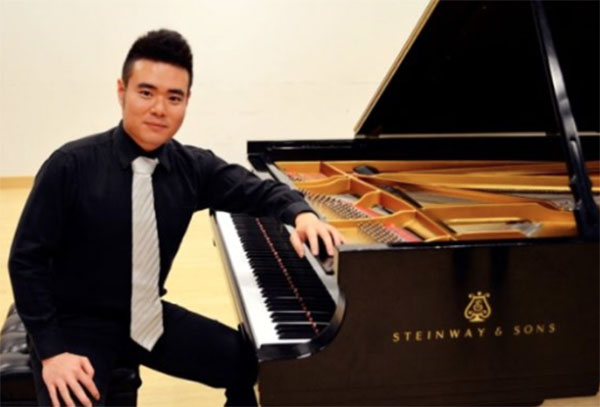Dallas Chamber Symphony to perform season finale concert featuring Rachmaninoff’s Piano Concerto No. 3
Dallas Chamber Symphony will perform its fifth and final concert of the season with one of the most thrilling and technically challenging piano concertos in the standard classical repertoire, Sergei Rachmaninoff’s Piano Concerto No. 3 in D Minor, to be performed by Yibing Zhang, winner of the 2017 Dallas International Piano Competition.
The Dallas Chamber Symphony will also perform Johannes Brahms’ tumultuous and stormy Tragic Overture, Op. 81, and Claude Debussy’s Petite Suite, arranged by Henri Büsser. The Dallas Chamber Symphony’s grand finale concert with full orchestra, led by Artistic Director Richard McKay, will be a captivating and enchanting evening.
The event begins at 8 p.m. May 1 at Moody Performance Hall located at 2520 Flora St. Tickets are $25 to $54 each, $15 for students, seniors save up to 25 percent. Tickets are available to purchase online at dcsymphony.org, by calling 214-449-1294, or in the lobby the night of the event. Doors open at 6:30 p.m.
Award-winning pianist Yibing Zhang will make his solo debut on Rachmaninoff’s Piano Concerto No. 3. Few pieces in the piano repertoire are as iconic – and feared – as Rachmaninoff’s third concerto, and Zhang impressed DIPC jurors with his mature interpretation and technical prowess.
Zhang began studying piano at the age of three in his native China. As the third prize winner of the China Central Television Cup Piano Competition in 2008, he performed with the China Philharmonic Orchestra. Zhang holds bachelors and master degrees from the Central Conservatory in Beijing and New England Conservatory, respectively. Zhang is pursuing a graduate artist certificate at the University of North Texas College of Music.
Brahms’ Tragic Overture is a dramatic symphonic movement featuring a two-chord fate motif. The composition was written in the summer of 1880 at the same time as Brahms’ light-hearted and sarcastic Academic Festival Overture.
The Petite Suite is one of Debussy’s most popular works for Piano four hands. An early work written in a traditional style for performance by skilled amateurs, it eschews the modern styles and harmonies the composer was experimenting with, which were exhibited in his contemporary and especially later works.









